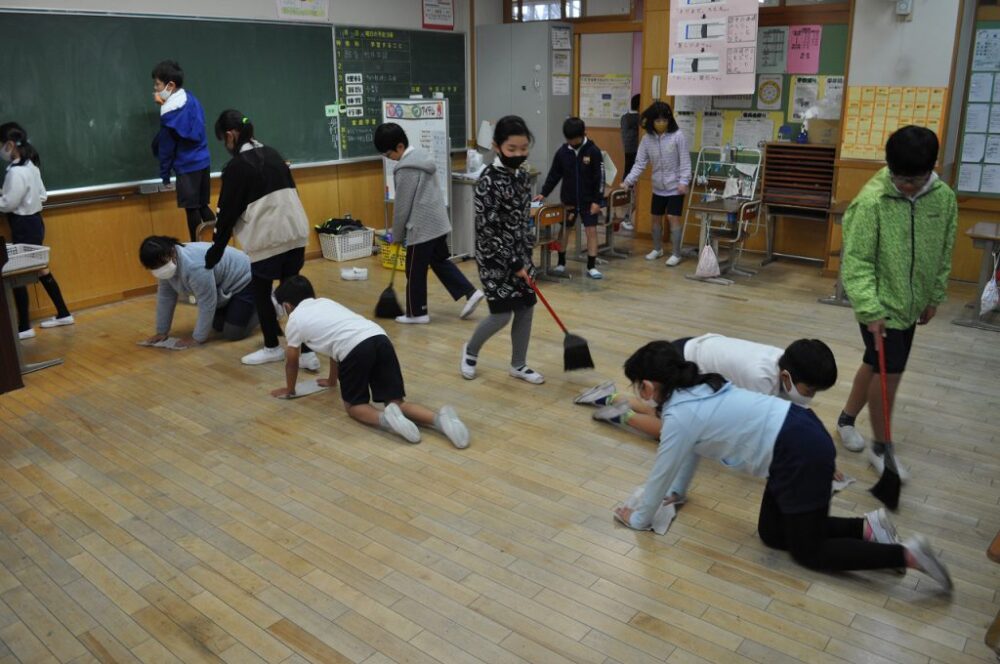Japan is often admired for its cleanliness, organization, and politeness. The country’s ability to maintain immaculate public spaces, an efficient and orderly society, and a culture rooted in respect and etiquette is impressive.
As the U.S. continues to grow and evolve, there are valuable lessons to be learned from Japan’s approach. Here’s a look at how the U.S. could benefit from adopting some of Japan’s key cultural practices.
Cultural Cleanliness as a Shared Responsibility
We asked Michael Stoian what was most memorable from his travels in Japan, and he said:
“When I visited Japan, I was struck by how spotless everything was—from bustling train stations to quiet side streets. It wasn’t just about how clean things looked; it was the evident pride people took in their environment. Watching commuters neatly sort their trash left me reflecting on how deeply ingrained these habits were. It’s a level of respect for shared spaces that I had never experienced before, and it left a lasting impression.”
In Japan, cleanliness is more than a habit—a deeply ingrained cultural value. From a young age, children are taught the importance of cleaning their homes, classrooms, and public spaces. Students in Japan even participate in daily cleaning routines at school, an activity that emphasizes collective responsibility and respect for the community. This practice helps to instill pride in maintaining clean surroundings and encourages individuals to care for public spaces as if they were their own.
For the U.S., encouraging a culture of cleanliness and responsibility could start by integrating these principles into school curriculums and public awareness campaigns. Shifting the mindset from “someone else will clean it” to “we are all responsible for keeping it clean” could lead to cleaner neighborhoods and more well-maintained public spaces.

Source: gifu-city.schoolcms.net
Urban Efficiency and Space Optimization
Japanese cities, particularly Tokyo, are known for their efficient use of space. Being the largest city in the world, Tokyo has mastered the art of optimizing space to accommodate everyone’s needs, from its compact yet effective public transport system to its well-organized housing and commercial areas. This focus on order and efficiency allows cities to thrive despite space limitations.
The U.S. could adopt similar urban planning strategies, particularly in cities facing congestion and housing shortages. Investing in efficient public transport systems, redesigning urban spaces to maximize their potential, and encouraging sustainable growth could significantly improve the livability of American cities.
The Power of Politeness in Public Life
One of Japan’s most notable cultural traits is its emphasis on politeness. Whether it’s bowing as a greeting, removing shoes before entering a home, or speaking softly in public spaces, social harmony and respect for others are woven into daily life. This emphasis on civility extends to how people interact in public places, helping to create a peaceful and orderly environment.
The U.S. could benefit from embracing a similar focus on politeness, particularly in crowded or public spaces. Encouraging more significant consideration for others—whether through better manners or simply being more aware of shared spaces—would foster a more pleasant and respectful environment.
Sustainability Through Structured Recycling Systems
Japan has one of the world’s most efficient and structured recycling systems. Citizens must separate waste into distinct categories, and each type of waste has specific disposal days. This rigorous system has helped Japan reduce waste and minimize environmental impact, making it a global leader in sustainability.
In the U.S., there’s room for improvement when it comes to recycling and waste management. Adopting a more structured approach to recycling, where individuals are given clear guidelines and regular reminders, could significantly impact. Additionally, incentivizing sustainable practices and supporting community-based recycling efforts could help reduce waste and encourage greener living nationwide.

Source: motto-jp.com
Respect for Public Spaces
In Japan, people tend to respect public spaces, not only by keeping them clean but also by being mindful of noise and personal space. It’s common for people to keep conversations quiet in public places like trains, and personal boundaries are respected. This awareness of how actions impact others contributes to the country’s sense of orderliness and peace.
The U.S. could create initiatives that promote similar awareness. Encouraging people to consider how their actions affect those around them—whether through noise reduction in public spaces or showing more consideration in crowded areas—could lead to a more pleasant and harmonious public experience.
Integrating Cleanliness into Public Events and Gatherings
Japan’s commitment to cleanliness extends beyond daily routines to large-scale public events. For instance, spectators at sports games or festivals often take responsibility for cleaning their seating areas before leaving. This collective behavior reflects a deeply rooted respect for shared spaces, even during occasions that involve large crowds.
In the U.S., public events often leave behind significant waste, placing a heavy burden on cleanup crews. Introducing systems that encourage attendees to clean up after themselves—such as providing easy access to waste stations and promoting cleanup campaigns—could help reduce waste and instill a sense of accountability. Public campaigns highlighting the benefits of such practices could foster widespread adoption, transforming how large events are managed.
Fostering Respect Through Workplace Etiquette
Japanese workplaces emphasize courtesy, structure, and efficiency, creating environments where employees feel respected and valued. Practices like exchanging business cards with care and using formal language signify a culture that prioritizes mutual respect. Clear hierarchies and defined roles contribute to smoother workflows and stronger professional relationships.
The U.S. could adopt elements of Japanese workplace etiquette to enhance collaboration and professionalism. Encouraging respectful communication, establishing clear organizational structures, and adopting simple gestures of courtesy could lead to more cohesive and productive workplaces. This shift would not only improve employee satisfaction but also build trust within organizations.

Source: ejable.com
Education as a Gateway to Responsibility
Japanese schools place a strong emphasis on teaching responsibility, from cleanliness to environmental awareness. Students are actively involved in activities such as sorting waste, growing food in school gardens, and engaging in community service. These initiatives shape children into responsible, community-oriented adults.
Incorporating similar programs in U.S. schools could yield long-term societal benefits. Hands-on activities that teach environmental stewardship, teamwork, and respect for shared spaces would prepare students to contribute positively to their communities. Early exposure to these values could transform future generations, fostering a culture of responsibility nationwide.
Health and Cleanliness in Public Transit
Japan’s public transit systems prioritize cleanliness and comfort, with spotless trains and well-maintained stations. Passengers are also mindful of their behavior, ensuring quiet, orderly rides. These standards contribute to a stress-free experience for commuters.
Public transit in the U.S. could benefit from a similar focus on cleanliness and etiquette. Increasing maintenance efforts, setting guidelines for passenger behavior, and promoting campaigns on respectful commuting could enhance the transit experience. Clean, reliable, and pleasant public transportation systems would encourage greater use and improve urban mobility.
Lessons for the U.S. from Japan’s Cultural Practices
Japan’s success in maintaining cleanliness, efficiency, and social harmony stems from its cultural values. However, these practices also represent practical strategies for fostering a more respectful and effective society. The U.S. has much to gain from integrating elements of Japan’s focus on community responsibility, urban planning, sustainability, and social etiquette.
By adopting these principles, the U.S. could work toward creating cleaner public spaces, more efficient cities, and a society rooted in mutual respect. While cultural differences may influence the implementation, the potential benefits—improved quality of life, stronger communities, and a healthier environment—make these lessons valuable and actionable.
Through thoughtful adaptation of Japan’s practices, the U.S. has an opportunity to create a more organized, sustainable, and harmonious future for its citizens.





















